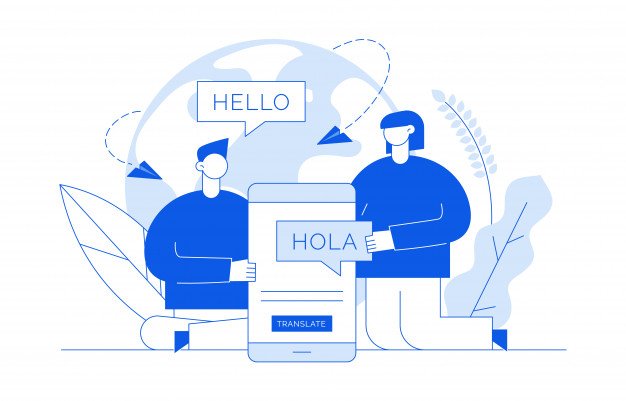When a company is already succeeding locally, business owners usually turn their thoughts to expansion. It makes good financial sense to expand by replicating your efforts and building on what you already have. After all, this is how some of the largest and most successful chains in the world started out. Make use of Website Translation to improve your business to the next level.
With the internet making global commerce a standard way of conducting business, the landscape has changed, opening up new opportunities. A worldwide presence is not just for big corporations like McDonald’s or Coca-Cola. The ability to do business across the globe is now within reach of even the smallest companies, thanks to globalization.
One of the most cost-effective ways to expand into new territories is by utilizing website translation services to increase your global reach. Making it easy for people in other parts of the world to access your goods and services can give you a far more competitive edge over your competition than opening a physical retail outlet.
What was once a highly specialized and very costly field is now a global industry. Many inexpensive opportunities exist to hire professional translation agencies to help you reach a multilingual audience.
The global market is wide open. You can start small with just one language at a time or choose to expand into many countries at once. The choice is yours – it just depends on how ambitious your vision is!
For those who decide to take the plunge, we have five tips to help you enjoy a successful website translation process.
Different Ways To Develop Your Website Translation Tips To Develop Your Business
There are multiple ways you can opt to develop the translation of your business. Working on this matter you have to make your choices in the right direction.
1. Avoid Machine Translation:
One of the biggest mistakes people make when they decide they want to go global is attempting to rely on machine translation. Yes, there are plenty of apps that can translate entire pages into a wealth of different languages, and they can be quite helpful in certain situations. However, translating your business website is not one of those situations. Website translation tips can help you to work things well in your favor.
Although machine translation is improving every year, it is not advanced enough to replace human translators, especially when it comes to business purposes. Chatting with foreign friends on Facebook is one thing. Product descriptions and important terms of service pages that have legal implications are an entirely different thing.
There are many humorous yet unfortunate examples of words literally being lost in translation. For example, in 2018 the tourism authority in Fiji created a video promoting travel to the country by highlighting everyday Fijian words. This was all well and good, but one of the terms, Vale ni Lotu was mistakenly translated as “toilet” instead of its actual meaning: “church” or “place of worship.” Understandably, Fijians were not amused.
2. Globalize Where Possible but Localize Where Not:
Globalizing and localizing are both a part of the translation, and there is a place for each approach during website translation. If you want to save time and effort, start with globalization. Work on similarities between regions as opposed to differences and avoid the need to adapt to multiple cultures where possible.
However, there will be some instances where localization is essential in order to reach a specific audience. Employ localization tactics for the most critical information, like local industry language or regional idioms and figures of speech. In this way, you will avoid inadvertently offending your audience before you even make your brand known.
3. Use a Sector-Specific Translator:
There are translators available in every possible language and for every possible sector. If you sell medical equipment, use a medical translator. If you are in the hospitality industry, hire a translator who specializes in hotels and travel. There is no reason to hire a general translator if your field is specialized; there are too many talented language service providers not to find one that fits your exact needs.
4. Check the Quality, Even When You Don’t Speak the Language:
If you don’t speak the language you are having your website translated into, how are you going to know if you have a high-quality translation? Don’t worry though, help is at hand. You can use a professional proofreading service or another translation agency to double-check the quality of the work. It doesn’t mean you need to spend a lot of time or money: simply use them to check a few paragraphs of your translation to ensure that it’s flawless.
5. Allow Plenty of Time for Your Translation Project:
Every project is different, and some translation jobs are harder than others. Depending on the industry in which you operate, it may require more time and research on the part of the translator to provide you with the highest quality deliverables. Translation, like writing, is an art. It should not be rushed if it can be helped. Not only will rushing frustrate the translator, but it could affect the outcome of the project.
If you follow these tips, you should be well on your way to expanding your business into foreign markets in the near future. Now is the time to seize the opportunity, before your competition gets there first!
Read Also:
- Riding The Wave Of Popularity: 7 Most Popular IT Buzzwords And What They Really Mean
- English As A Second Language: Ways To Find Great Teaching Materials On A Budget
- Language And Speech Disorders In Children: How Speech Therapists Can Help
- The Importance Of Exploring And Knowing The Language Hindi
- Tips To Help You Learn A New Language In A New Country
- 5 Golden Rules Of Children Language Learning






















